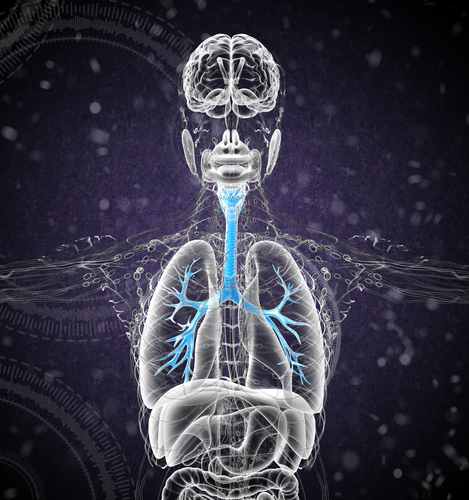Basilea, a Swiss-based pharmaceutical company, recently announced that they are developing a new formulation of BAL30072, a monosulfactam antibiotic with bactericidal activity against multidrug-resistant gram-negative bacteria, as part of a Europe-wide program that focuses on the development of antibiotics for patients with bronchiectasis (BE) and cystic fibrosis (CF).
In partnership with the inhaled Antibiotics in Bronchiectasis and Cystic Fibrosis (iABC) project, which includes world-renowned lung specialists, Basilea will work on the creation of novel inhaled antibiotics, including this monnosulfactam antibiotic, which has demonstrated activity against multidrug-resistant Gram-negative bacteria. This type of bacteria has a complex membrane physiology since it is composed of two separate layers and its outer leaflet comprises a complex molecule called lipopolysaccharide (LPS) that can act as a toxin. Once in circulation in the body, the gram-negative’s liposaccharide can cause a toxic reaction that we are mostly familiar with as a bacterial infection.
Inhaled antibiotics are expected to reduce the incidence of lung infections in lung disease patients and help overcome antibacterial resistance. Prof. Achim Kaufhold, Basilea’s Chief Medical Officer, noted that Basilea is “pleased to work with the iABC consortium within the European IMI, focusing on the high medical need associated with resistant Gram-negative infections that affect cystic fibrosis and bronchiectasis patients.” He went on to highlight that the inhaled version of BAL30072 is a treatment option for these chronic lung infection patients. The research group will now run pre-clinical development activities in order to prepare phase 1 clinical trials.
The iABC program is part of the European New Drugs for Bad Bugs (ND4BB) program. It is a five-year program that is designed to facilitate partnerships between industry, academia and biotech organizations to combat antibiotic resistance in Europe by tackling the scientific, regulatory, and business challenges that may at times hamper the development of new antibiotics. By being part of this program, Basilea will be able to participate in the establishment of the first European patient database for bronchiectasis, allowing for the development of a tracking tool of service quality provided to patients. In addition, the database will also help the development of new drugs by compiling a pool of patients with the disease across Europe.
The iABC group includes in its team researchers from the Medicine, Dentistry and Biomedical Sciences, and the School of Pharmacy at Queen’s University Belfast in Ireland, as well as members of the European Federation of Pharmaceutical Industries Association (EFPIA) partners, Basilea and Novartis. This initiative is funded by the European Commission through the Innovative Medicines Initiative (IMI) and through contributions by EFPIA companies.
Overall, the BAL30072 related research project will be funded by an investment of around 11 million euros. Out of this amount, Basilea will invest half of it into BAL30072 drug development.
The consortium involves researchers from 20 organizations in eight countries across Europe.

